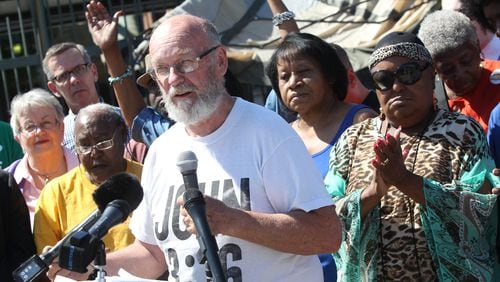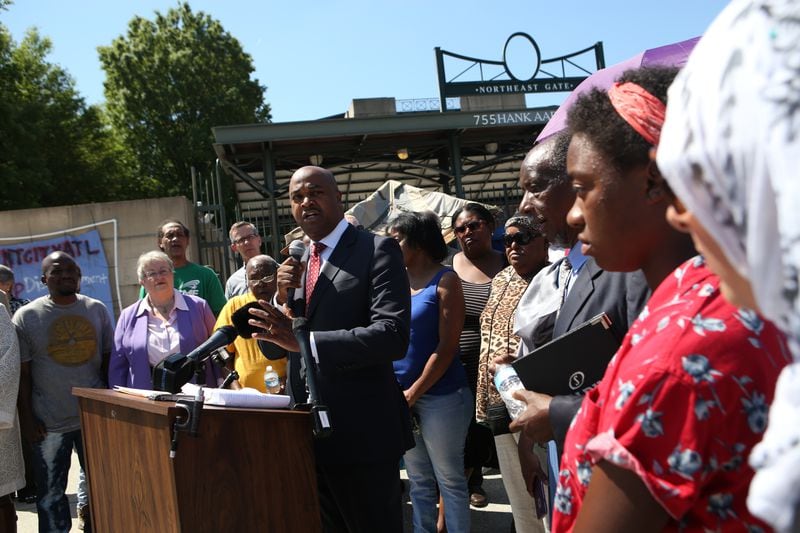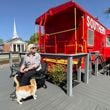A major development in the works for the former Turner Field site has caused a rift between neighbors in the area.
The divisions came to a head Wednesday when a community group spoke out in opposition to an announcement by Georgia State University and Atlanta developer Carter & Associates that they and some neighborhood associations had reached agreements on long-term engagement plans with residents.
Despite this agreement, some residents and city and state officials are still upset, saying it was made in bad faith and does not do enough to protect residents from losing their homes.
The school and developer bought the 68-acre site last year for $30 million and put forth a redevelopment plan that includes a mix of retail, offices, student housing, apartments and a southern extension of Georgia State’s campus. Plans also call for The Ted to become a football stadium and a new baseball field to go where the Atlanta-Fulton County Stadium used to be.
But some residents of the neighborhoods surrounding the site — Summerhill, Peoplestown, Mechanicsville, Pittsburgh and Grant Park — are concerned that the promised investments will not benefit everyone.
Out of these fears, neighborhood leaders formed the Turner Field Community Benefits Coalition in late 2014. This group of about 40 organizations wants to secure a legally binding community benefits agreement that, among other things, would ensure residents won’t be displaced.
But the development team has not signed such an agreement, and the Coalition has reacted with numerous protests. Some members left the Coalition over differences last year, essentially creating two groups speaking on behalf of the neighborhood residents involved.
Members from the second group began having separate meetings with the development team. Eight people from four such divided organizations were named in a letter from the president included with the agreements from Carter and GSU announced Monday. The agreements say they will address systemic flooding, provide jobs and education programs, and set aside at least 10 percent of new housing for low-income Atlantans. Coalition members say 10 percent for housing is not enough.
The Coalition also met with the school and developers Monday, but did not reach any sort of agreement.
In response, the group held a press conference Wednesday to address the other group's agreement. Held in front of the Coalition's nearly month-long protest encampment outside the gates of Turner Field, residents made impassioned pleas for GSU to not leave them behind in discussions.
Elected officials, including Sen. Vincent Fort, Rep. "Able" Mable Thomas and city councilman Kwanza Hall, also spoke at the event held less than two weeks after the Atlanta Braves opened in their new Cobb County home.
Credit: Henry P. Taylor
Credit: Henry P. Taylor
Hall told the crowd he would personally call Carter and GSU president Mark Becker to get them to the table for a “real agreement.”
“I mean this isn’t rocket science,” Hall said. “This is too easy, we agree on everything else, but you’re telling me we can’t agree with a neighborhood on how you’re going to treat them?”
Bharath Parthasarathy, GSU attorney and chair of the university’s stadium engagement committee, said the agreement came after many months of discussions.
“This was a sustained, collaborative dialogue with the elected officials of the neighborhood associations and input from lots of different avenues,” he said.
The school and developers have had sit-downs with the Coalition and extended multiple invitations that have been disregarded, Parthasarathy said.
“The disappointing part is, I think, the noise is obfuscating the actual commitment by the university to be a long-term partner with these neighborhoods,” Parthasarathy said.
John Colabelli, president of the Organized Neighbors of Summerhill, was one of the community representatives involved with the agreements. Colabelli said his organization supports the agreement.
“We are looking for the investment,” he said. “Yes, we are concerned about the effects of that, but that’s why we’re at the table and have been talking and trying to build relationships with GSU and Carter, so that we can have that open dialogue and that ability to make sure that this happens correctly.”
About the Author







